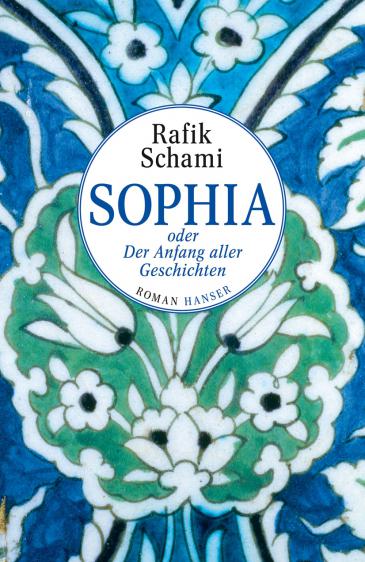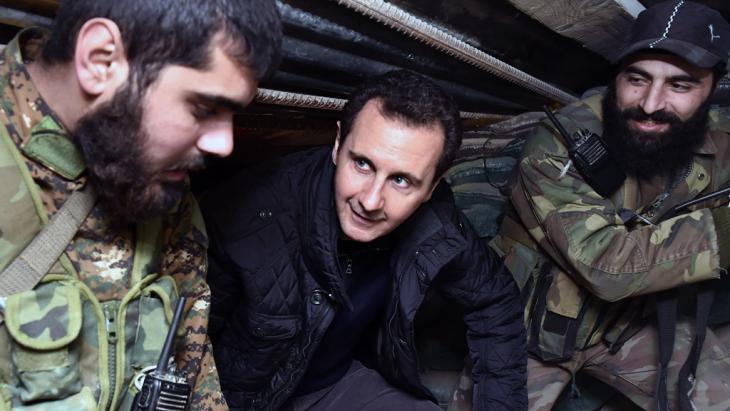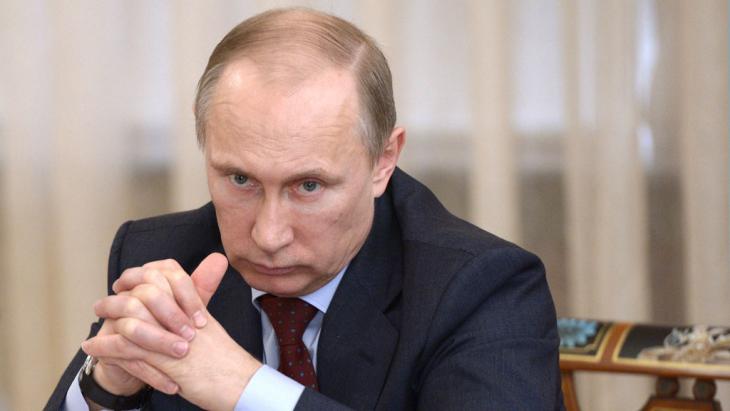"Escape is a life-saver"

Rafik Schami, Syria has been destroyed. People are doing just about anything to get out of the country. Could you ever have envisaged such a catastrophic development?
Rafik Schami: I was sceptical. That's why I also made myself unpopular with my friends in the Syrian opposition. While they were initially jubilant, I simply didn't want to believe in an imminent victory. But I didn't suspect the scale of the catastrophe. That a ruler would use poison gas on his own people – it's simply unprecedented.
At the start of the "Arab Spring" there was a general sense that the upheaval would bring democracy to the Arab world. But it would appear that only Tunisia has found this path. In Syria, the development has arguably taken the worst possible turn. How do you explain that?
Schami: Syria has the historic misfortune of being strategically important. Tunisia is a tourist country on the periphery of the Arab world. There are barely any conflicts in its vicinity. In the case of Syria on the other hand, it would be easier to count the powers that aren't intervening. The US, Russia, China, Iraq, Lebanon, Turkey, Saudi Arabia, Qatar, Israel and Iran – all these nations have turned Syria into an arena for their own conflicts. And the IS, a recent upstart, is already a protagonist in this bloody game. Then, of course, there is also the Middle East conflict and the Kurdish question.
That′s why I have no faith in an imminent solution to the conflict. As soon as one side weakens, the other gains in strength. The Kurds had barely received their weapons and were bravely fighting IS from their villages, when they were attacked by Turkey. Because they shamed Erdogan with a parliamentary defeat, the Turkish president – in the pursuit of his own megalomaniac fantasies – views them as an obstacle. Yet this settling of scores is being conducted at Syria's expense. The battles are taking place on the northern Syrian border, and they are weakening the Kurds, whom Turkey would be better off regarding as coalition partners in the fight against IS.

Your new novel "Sophia oder Der Anfang aller Geschichten" (Sophia or the Beginning of All Stories) grapples with the period immediately preceding the uprising in Syria. Aunt Amalia, a particularly fascinating woman in your novel who, from the point of view of the main protagonist Sophia embodies three revolutions at once, doesn't believe in the revolution herself…
Schami: I find this time especially gripping – when the earth begins to tremble and the first cracks in the regime′s ceiling appear. Aunt Amalia is critical of the armed groups. She talks about how the word "revolution" can be used to deceive. I found this in Copernicus, whose biography I happened to read by chance. I'm a scientist myself. But it didn't occur to me that the clue is in the prefix "re". The word revolution describes a repetitive, circular motion. With a military rebellion, a revolution, or a putsch we are thus simply replacing one washed-up dictator with a new one – we are just going round the same old circle.
Then the revolution in Syria didn′t stand a chance from the outset…
Schami: What took place in Syria was not a revolution. It was a popular uprising, the civilised, courageous uprising of the masses who wanted democracy and freedom. On one day two million people took to the streets. These people were unarmed. But then shots were fired at the crowd. The responsibility for the terrible turn of events lay from the outset with the dictatorship.
Did you hope that the West would intervene when Assad deployed poison gas against his own people?
Schami: That's precisely what should have happened. By looking the other way, European politicians betrayed the fundamental values of their culture: freedom, democracy and human dignity. Now suddenly, Monsieur Hollande is finding reasons to cultivate a dialogue with Assad. And Gerhard Schindler, the head of Germany’s intelligence agency, is negotiating with his Syrian counterpart. A murderer, no less! And all this is happening without the knowledge of German parliamentarians. Not to mention the fact that the American president′s much vaunted red line has turned out to be nothing more than a rubber band.
The Egyptian writer Alaa Al Aswany has emphasised, in reference to IS, that the international community must act together to get rid of this organisation. Do you agree?
Schami: Instead of relying on drones, Arabic ground troops need to be sent into the country. These should be mustered with foreign support. Arabs must also be involved, however, because they know the terrain – in contrast to American troops, who are flown in in helicopters and can't find their way around at all.
In your novel, you refer to escape as a perpetual feature of Arab culture. "Escape is a new beginning, hope…", your protagonists say. Do you believe that the refugees in Europe will get a new beginning? There is already talk of their return...

Schami: The Islamic calendar neither begins with the Prophet Muhammad′s birth nor with his death; it begins with his flight to Medina. That′s of huge symbolic significance. Escape is a life-saver. The saying gives no clue as to what life may be like afterwards. It refers only to the moment of escape. As soon as you decide to escape, life begins afresh. These are the words of a Chinese sage. You don't need to be ashamed of your escape. You have the chance to start over. You are not a coward. You want to make a new start. And many roads present themselves. Some of the refugees migrate to America or Australia. That's usually final, they don't come back. Others wait and would like to go back sooner rather than later. Some stay, above all the well-educated ones. With a little knowledge of the language, they quickly find a new perspective on life. Unfortunately, they will be missed in their country of origin. Every doctor, every engineer will be absent when it comes to reconstructing Syria. But that is the destiny of every individual. You can't sit in judgement over the decisions of others.
In view of the many refugees now in Germany, an overwhelming number of Germans have demonstrated a willingness to help. But there are voices arguing with a certain ′schadenfreude′. Along the lines of: ″See where your revolution has got you!"
Schami: That's simply malicious. It′s a deliberate attempt by the dictatorship′s ignorant supporters to equate criminals with victims, thereby blurring the distinctions between cause and effect. Those who demanded freedom are not responsible for the misery. The catastrophe arose as a result of collective global stupidity, that is, allowing this dictator to remain in power.
The Syrian writer Samar Yazbek said the most pressing task is to dismiss Bashar al-Assad…
Schami: Using mediation, the Europeans are aiming to get us used to the idea that a compromise must be found with Assad. But that's impossible. You can't negotiate a compromise with a murderer who has 250,000 deaths on his conscience and who drops poison gas on civilians. He has to go. Yet we Syrians also need to learn to forgive. Without forgiveness there can be no democracy. A transitional government that includes those who served the Assad regime without getting their own hands bloody will be necessary.
Your new novel is a wonderful plea against ideology. But is it not a sign of ideological blindness, if one alleges that this is the outcome of a desire to clear away the last vestiges of the Soviet empire? Is a proxy war taking place once again?

Schami: To a certain extent. Putin is trying to compensate for his failures with the Russian economy. Russia has absolutely no economic clout at a global level. Western Europe, China, the US, Brazil and perhaps Singapore are at the forefront. Russian products – apart from armaments – are nowhere to be found. Putin is behaving like a colonial lord. He sends arms to the Crimea and Ukraine, and he supports the dictatorship in Syria because he wants to exert his influence in this rich and strategically important region, not to mention retain the military base at Tartus, the only warm-water port for his submarines. Had Putin an opponent along the lines of a Helmut Schmidt or Willy Brandt, that opponent would have stopped him long ago. But there isn't a figure like that among contemporary politicians in Western Europe. Their lack of stature has turned Putin into a giant.
We've got to the point where we shouldn't just be naming "the bad guys" – Iran, Russia and China –we need to be asking some hard questions of the West. Where are its much vaunted freedom values? How can it allow poison gas to be manufactured close to Israel? There is proof that French, German, Dutch and even US firms are all involved in the manufacture of poison gas. What kind of game is being played here?
There is much talk of democracy in the West. Sometimes however you get the impression that the West isn't really interested in a democratic Arab world...
Rafik Schami: Unfortunately that's true. I've harboured this suspicion for four years. It makes you wonder what kind of experts the politicians in Europe consulted! As if an Arab democratic government would not be interested in selling oil. Without the sale of oil, the Arab world would implode. Even under a democracy, we would have to sell oil on the global market.

I accept that my comments are bound to frustrate many, but apparently no-one is interested in whether we have democratic government or not. With Saudi Arabia things are going fine. The US even operate a number of military bases there. The purpose of this is simply to protect the Saudi royal family from a putsch or a revolt. Qatar is home to the largest CIA headquarters and US command centre in the entire Middle East. Saudi Arabia and Qatar support the fundamentalists with money. There is even a suggestion that they are supporting IS, because its members are Sunni fundamentalists. Are the Americans really trying to tell us that they are in a position to eavesdrop on the German chancellor, yet know nothing of the role being played by Qatar and Saudi Arabia? And then they behave as though they are working against IS. What kind of schizophrenia is that!
With a reference to the Qarmatian republic of councils in the 11th century, you show that traditions for an alternative model do exist in the Arab world. Could one draw on these?
Schami: The Islamists always accuse us of being colonialist proxies. But we don't have to copy European democracy. We don't need to adopt the English, the French or the German parliamentary model. We can create something from the democratic traditions of our own culture. The Qarmatian republic held for 150 years. From it we learn how women actually did live on an equal footing with men. It would be interesting to find out what principles they had. We can also learn much about democracy from Sufi philosophy – from the great martyr al Halladsch, not to mention Salman Alfarsi, Abdulqadir al Dschili and Ibn Arabi, right through to Hadi al Alawi. Drawing judiciously from this source and taking the experience of other nations into account, we can create a living constitution, which would include in its opening paragraphs assurances relating to freedom and the inviolability of human dignity. A democracy created on this basis would be rooted in our culture and, moreover, it would have a future.
You once complained that the achievements of Arab-Islamic culture are barely recognised here in Germany. The opinions voiced are generally characterised by arrogance and ignorance. Will the refugees in Europe alter anything in this regard? Will they bring promote understanding?
Schami: That question can only be answered with caution. The future sometimes holds surprises. I suspect that in one section of society the arrogance will increase, stemming from a sense of superiority over these people, who need help, cannot express themselves and don't understand the rules governing interaction in the new society. At the same time, in other social classes the open, understanding approach borne by love will increase – first and foremost among those who actually come into contact with the refugees and work with them on an equal footing. Just as in all tests, there is likely to be a degree of division. The refugees are a test for European society.
Interview by Ruth Renee Reif
© Qantara.de 2015
Translated from the German by Nina Coon
Rafik Schami was born as Suheil Fadel in Damascus in 1946. He comes from an ancient Aramaic family. He published his first works – short stories and fairytales – early on. In 1966 he founded the critical literary ″wall″ newspaper ″Al-Muntalak″ (The starting point) in Damascus old town; it was banned in 1970. In 1971 he emigrated to Germany and in 1982 established himself as a freelance writer under the pseudonym Rafik Schami (friend from Damascus). In 1980 he co-founded the Südwind literary group and co-published the Südwind literary series. In 2011 he founded the literary series Swallow Editions to publish literature from Arabic countries. The series aims to build a bridge between Arabic authors and their readership around the globe. The recipient of numerous awards, Rafik Schami has seen his work, which also includes children′s books and essays on political developments in the Middle East, translated into 28 languages.
